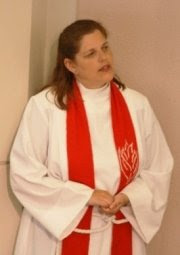We begin part of the Bible known as "Wisdom literature". This is Psalms, Proverbs, Ecclesiastes and the Song of Solomon. They are known as wisdom but a better word might be poetry. The Psalms are the songs of the nation of Israel, Proverbs is poetic writing, Ecclesiastes and the Song of Solomon are long poems of praise and theological reflection.
Today we begin the book of Psalms. This is the hymnal of the people of Israel. The psalms came into being over a long period of time and were finally edited into the form we have them now around the time of Jesus.
The titles of the psalms contain directions to the musicians and some technical terms - that we don't any long know what they mean - "Selah" being the most common.
The book of Psalms is actually divided into 5 books. Psalms 1-41; 42-72; 73-89; 96-106 and 107-150. There are five books to imitate the 5 books of the Torah. Each of the first four books ends with a doxology - a praise of God not a part of the psalm that it seems to be attached to.
The Psalms fall into 6 categories:
Hymns of Praise - these are Psalms 8,19,29,33,65,66, 100,104, 105, 111,113,114, 117, 135, 136, 145, 146 and 148-150
Laments - these are psalms of complaint to God - they usually resolve into praise - see Psalm 4 as an example
Royal Psalms - there are royal laments, royal thanksgivings and royal psalms of praise - but in all of them the king is the speaker or the focus of attention - see Psalm 2 for an example
Wisdom Psalms - those with connections to other wisdom books - see Psalm 1 as an example
Liturgical Psalms - for use in the temple - see Psalm 15
and Historical Psalms - that recount God's works in history - for example Psalm 48
Subscribe to:
Post Comments (Atom)

No comments:
Post a Comment